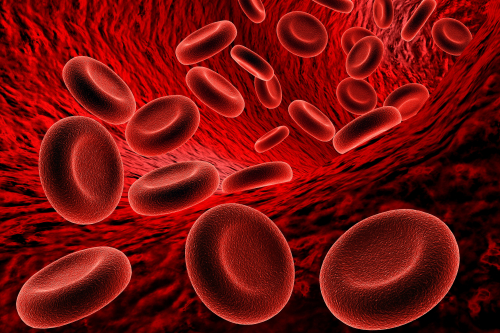New Brunswick, N.J., September 23, 2024 – According to the Leukemia and Lymphoma Society, approximately every 3 minutes, one person in the United States is diagnosed with a blood cancer, including leukemia, lymphoma or myeloma. It’s essential to increase understanding of these diseases and highlight the importance of early detection and advancements in treatment.
Understanding Blood Cancer Types
“Highlighting blood cancer is crucial, as awareness and education are our best tools in combating these diseases and supporting patients in their recovery journey,” says Claire Yun Kyoung Ryu Tiger, MD, PhD, medical oncologist in the Leukemia/Lymphoma/Hematologic Malignancies Program at Rutgers Cancer Institute and RWJBarnabas Health. “Knowing the distinctions of each type of blood cancer is vital for accurate diagnosis and effective treatment.”
Leukemias are cancers of the white blood cells involving the bone marrow and blood and rarely lymphatic system. They lead to the production of abnormal white blood cells, which can interfere with the body's ability to fight infections. There are several types of leukemia, including acute lymphoblastic leukemia (ALL), acute myeloid leukemia (AML), chronic lymphocytic leukemia (CLL), and chronic myeloid leukemia (CML).
Lymphomas are cancers of immune cells called lymphocytes, which is part of the body's immune system. The two main types of lymphoma are Hodgkin lymphoma and non-Hodgkin lymphoma. These cancers can be slow-growing or fast-growing, and can be found in various parts of the body, including lymph nodes, spleen, and bone marrow.
Myeloma, also known as multiple myeloma, is a cancer of the plasma cells, immune cells that are found in the bone marrow. When myeloma cells multiply, this can lead to bone damage, anemia, kidney problems, high blood calcium levels and a weakened immune system.
Early Detection is Key
While there are no routine screening tests for leukemia or lymphoma, knowing the warning signs help physicians determine if a patient may have one of these types of cancers so the disease can be diagnosed and treated successfully. Common symptoms include:
- Fever
- Drenching night sweats
- Persistent fatigue
- Weakness
- Bone/joint pain
- Unexplained weight loss
- Swollen lymph nodes, liver, or spleen
- Anemia
Dr. Tiger, who is also an Assistant Professor of Medicine at Rutgers Robert Wood Johnson Medical School, emphasizes the importance of recognizing these symptoms early. “Many patients with blood cancers initially experience vague symptoms that can be attributed to less serious conditions. It’s crucial to pay attention to persistent or unusual changes in your health and seek medical advice promptly,” she says.
“Advances in blood cancer treatment have given us more effective ways to treat these diseases,” Dr. Tiger adds. “With ongoing research and new therapies, patients have more options with more effective and less toxic treatments. We’re in a new era of treatment for many types of blood cancer, and have never been more hopeful.”
Advancements in Blood Cancer Research and Treatment
Over the last decade, there have been significant improvements in treatments for leukemia and lymphoma. Clinical trials have helped develop new drugs, while also establishing new uses for accepted drugs. CAR T-cell therapy is a FDA-approved cellular therapy for leukemia, lymphoma and multiple myelomas. Rutgers Cancer Institute in collaboration with RWJBarnabas Health offers this novel therapy, both those that are already FDA approved as well as those in clinical trials along with many other new immune based and targeted therapies, leading a number of clinical trials for these types of cancers.
Rutgers Cancer Institute and Robert Wood Johnson University Hospital, an RWJBarnabas Health facility, earned several High Performing ratings in the 2024-2025 U.S. News & World Report Best Hospitals survey, including for leukemia, lymphoma & myeloma. Learn more about the Hematologic Malignancies Program: https://cinj.org/patient-care/adult/leukemia

